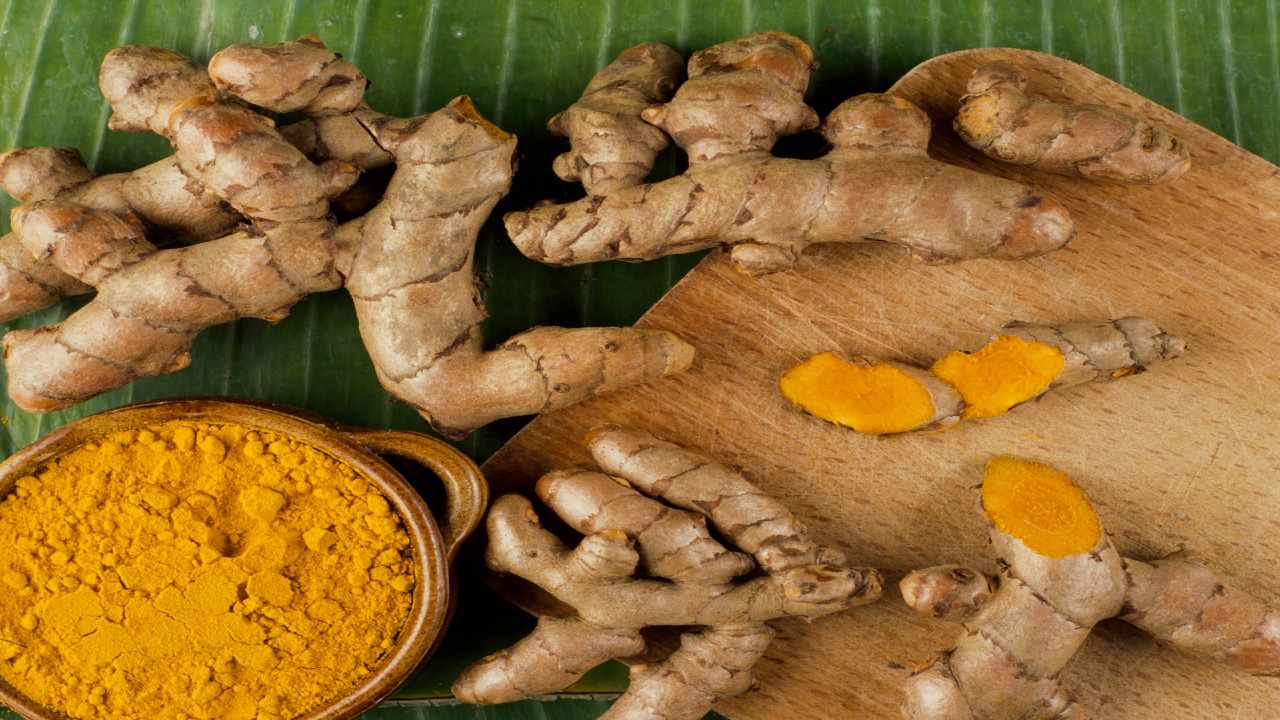Exercise Daily – Pain management is vital for maintaining overall chronic or acute well-being. Pain can significantly impact daily life, hindering routine tasks. While conventional approaches often involve pharmaceutical painkillers and physical therapies, natural alternatives are gaining interest. Herbal remedies, derived from plants and natural compounds, are popular for their potential effectiveness in relieving pain. Let’s explore the role of natural remedies in pain management in managing and alleviating various types of pain, including chronic pain, muscle pain, low back pain, and arthritis pain.
We’ll also touch on the therapeutic benefits, systematic reviews, and meta-analyses supporting their use. Research indicates that herbal medicine can relieve chronic pain, reduce pain severity, and ease pain episodes. For those suffering from chronic pain, natural options offer alternatives for pain management, decreasing reliance on pharmaceutical painkillers. However, more research is needed to fully understand their effectiveness and the body’s natural response to pain.
Understanding Pain
Before delving into herbal remedies, it’s important to understand the nature of pain. Pain can be broadly categorized into nociceptive pain and neuropathic pain. Nociceptive pain results from tissue damage or inflammation and is commonly experienced as a response to injury or illness. Neuropathic pain, on the other hand, arises from damage or dysfunction in the nervous system. Understanding the causes and mechanisms behind pain can help us identify suitable approaches for pain management.
Pain Management
Before delving into natural remedies, it’s important to understand what pain management entails. Pain management refers to a range of techniques and therapies aimed at reducing pain and improving the quality of life for individuals experiencing discomfort. Pain can manifest in different ways, including musculoskeletal pain, joint pain, neuropathic pain, and inflammatory pain. Conventional pain management approaches often rely on pharmaceutical interventions, such as pain medication and invasive procedures. While these methods can be effective, they may have side effects and risks.

Natural Remedies for Pain Relief
Natural remedies provide an alternative to conventional pain management by harnessing the healing power of nature. These remedies include herbal medicine, alternative therapies, and lifestyle modifications that can help alleviate pain and promote overall well-being. One of the key advantages of natural remedies is their potential to reduce pain without the adverse effects commonly associated with pharmaceutical painkillers.
Natural remedies can aid athletes in managing pain by offering alternatives to pharmaceuticals, including herbal supplements like arnica for reducing inflammation, turmeric for its anti-inflammatory properties, and ginger for alleviating muscle soreness. Additionally, practices such as acupuncture and massage therapy can target specific areas of discomfort, promoting faster recovery and enhancing overall performance. Let’s explore some specific natural remedies that have shown promise in pain management.
Herbal Remedies for Pain Management
Herbal remedies have been used for centuries to alleviate pain and promote healing. Various herbs have analgesic and anti-inflammatory properties, effectively managing pain. Some commonly used herbal remedies for pain relief include turmeric, ginger, willow bark, and devil’s claw. These herbs can be consumed as teas, tinctures, or supplements. It’s important to note that the effectiveness of herbal remedies may vary from person to person, and consulting with a healthcare professional is advisable before incorporating them into your pain management routine.
The Role of Herbal Medicine in Pain Relief
Herbal medicine, as a whole, offers a comprehensive approach to pain relief. It involves using different herbs and plant extracts to address pain and its underlying causes. Herbal medicine considers the individual’s unique constitution and aims to restore balance and promote well-being. Several herbs, such as valerian, St. John’s wort, and chamomile, have been extensively studied for their analgesic properties. Research and evidence suggest that herbal medicine can be an effective and safe option for managing pain, especially when used under the guidance of a qualified herbalist or healthcare professional.

Alternative Therapies for Pain Management
In addition to herbal remedies, alternative therapies provide additional avenues for pain relief. These therapies focus on addressing the body and promoting its natural healing mechanisms. Chiropractic care is one such alternative therapy that has gained popularity in pain management.
The Chiropractic Care for Pain Management
Chiropractic care revolves around manipulating and adjusting the spine and musculoskeletal system to relieve pain and enhance overall health. Through hands-on techniques, chiropractors address spinal misalignments that may be causing discomfort and pain. This therapy is especially advantageous for those with back, neck, and joint issues. Chiropractic care aims to realign the spine, decrease inflammation, and bolster the body’s natural healing mechanisms. It’s crucial to receive chiropractic treatment from a qualified and seasoned practitioner.
Other Natural Ways to Relieve Pain
Apart from herbal remedies and chiropractic care, there are various other natural approaches to pain relief. Making lifestyle changes, such as adopting a healthy diet, exercising regularly, and practising stress management techniques, can positively impact pain management. Additionally, complementary therapies like acupuncture, massage therapy, and mindfulness-based stress reduction have shown promise in reducing pain and improving quality of life. These natural methods can enhance their effectiveness with other pain management strategies.

Conventional Approaches to Pain Management
Conventional pain management often involves the use of pharmaceutical painkillers, such as nonsteroidal anti-inflammatory drugs (NSAIDs) and opioids. While these medications can provide temporary relief, they may come with side effects and the potential for dependency. Physical therapies, including chiropractic care and alternative therapies like acupuncture, are also commonly used to manage pain. These approaches aim to address the underlying causes of pain and promote healing.
The Power of Herbal Remedies
Herbal medicine has been used for centuries to treat various ailments, including pain. Many plants and natural compounds possess analgesic properties that can help relieve pain without the side effects of pharmaceutical drugs. For example, turmeric, a spice commonly used in cooking, contains curcumin, which has anti-inflammatory properties and can help alleviate pain. Other herbal remedies, such as ginger, willow bark, and devil’s claw, have also shown potential in managing pain associated with specific conditions like arthritis, musculoskeletal pain, and menstrual pain.
Exploring Natural Pain Relief Options
In addition to specific herbal remedies, various natural approaches to pain relief can be incorporated into one’s lifestyle. Home remedies, such as hot and cold therapy, herbal compresses, and relaxation techniques, can provide temporary relief and promote healing. Taking a holistic approach to managing pain involves considering factors like diet, exercise, stress management, and sleep patterns. Certain herbal supplements, such as turmeric capsules or ginger extracts, can also be integrated into a pain management regimen to enhance their effects.
Taking an Active Role in Pain Management
To effectively manage pain, taking an active role in your healthcare is essential. Key steps include understanding the nature of your pain, communicating with healthcare professionals, and creating a comprehensive pain management plan. You can tailor a pain management strategy that suits your needs and preferences by integrating natural and conventional approaches.
Taking an Active Role in Pain Management
While natural remedies and therapies can provide significant relief, taking an active role in pain management is essential for long-term success. By actively participating in their own care, individuals can gain a sense of empowerment and better control over their pain. Here are some tips for actively managing pain:
Tips for Actively Managing Pain
- Practice self-care: Prioritize self-care activities that promote relaxation and stress reduction, such as taking warm baths, practicing deep breathing exercises, or engaging in hobbies you enjoy.
- Incorporate exercise: Regular physical activity can strengthen the body, reduce pain, and improve overall well-being. Consult with a healthcare professional to determine suitable exercises for your specific condition.
- Utilize mind-body techniques: Techniques like meditation, guided imagery, and mindfulness can help shift focus away from pain and promote a sense of calm and well-being.
- Seek physical therapy: Working with a physical therapist can provide targeted exercises and techniques to address pain and improve mobility. They can also educate you on proper body mechanics to prevent further injuries.
- Explore comprehensive pain management programs: Consider participating in comprehensive programs that integrate various modalities, including natural remedies, conventional treatments, and psychological support. These programs provide a holistic approach to pain management and can be tailored to individual needs.

Conclusion
Natural remedies play a vital role in pain management by offering effective and safe alternatives to conventional approaches. Herbal remedies, alternative therapies like chiropractic care, and active self-management strategies can significantly reduce pain and improve overall well-being. It’s important to remember that pain management is a personalized journey, and what works for one person may not work for another. Therefore, it’s advisable to consult with a healthcare professional or pain management specialist to develop a tailored approach that suits your specific needs.
FAQs – The Role of Natural Remedies in Pain Management
Q: Are herbal remedies safe for pain relief?
A: Herbal remedies can be safe for pain relief when used appropriately. However, it’s important to consult with a healthcare professional before trying any new herbal remedy, especially if you have underlying health conditions or are taking other medications.
Q: Can herbal remedies eliminate pain?
A: While herbal remedies can provide significant pain relief, they may not eliminate pain in all cases. The effectiveness of herbal remedies can vary depending on the individual and the specific condition causing the pain.
Q: How long does it take for herbal remedies to work?
A: The time it takes for herbal remedies to work can vary depending on the remedy and the individual. Some herbal remedies may provide immediate relief, while others may require consistent use over some time to experience the full benefits.
Q: Can herbal remedies interact with other medications?
A: Yes, herbal remedies can interact with other medications. It’s important to inform your healthcare professional about any herbal remedies you use to ensure no potential interactions or adverse effects.
Q: Is chiropractic care effective for pain management?
A: Chiropractic care has shown effectiveness in managing certain types of pain, particularly musculoskeletal pain. Many individuals have found relief from conditions such as back, neck, and joint pain through chiropractic treatments. However, consulting with a qualified chiropractor and discussing your specific condition is important to determine if chiropractic care suits you.
Q: Are natural remedies as effective as pharmaceutical painkillers?
A: Natural remedies can effectively manage pain, but their potency may vary from person to person. It’s important to consult with a healthcare professional to determine the most suitable approach for your specific condition.
Q: Can herbal remedies interact with other medications?
A: Herbal remedies can interact with certain medications, so it’s crucial to inform your healthcare provider about any herbal supplements you are taking to avoid potential interactions.
Q: Is chiropractic care suitable for everyone with pain?
A: Chiropractic care can benefit many individuals experiencing pain, but it may not be appropriate for everyone. It’s best to consult a chiropractor to assess your specific condition and determine if chiropractic care suits you.




